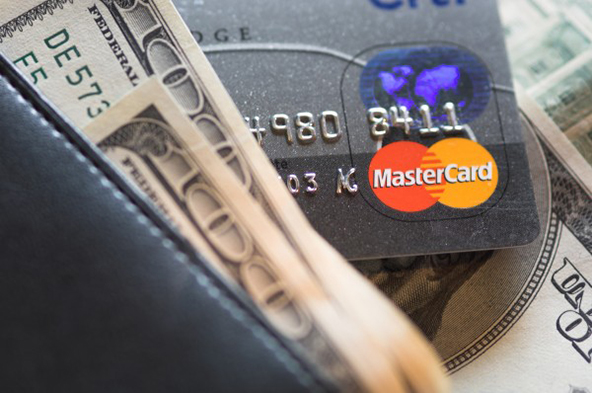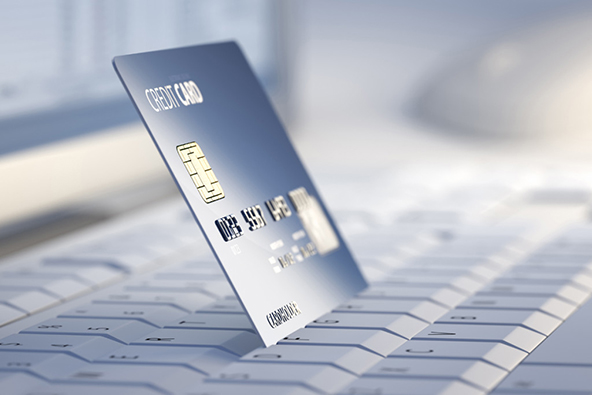Why Banks Want to Give You Credit Cards after Bankruptcy

CardRatings.com’s Curtis Arnold has compiled a list of what he believes are the best credit cards Americans can have after a bankruptcy. While I’m not really all that interested in how all these cards compare to one another, I’d like to say a few words about the concept of extending credit to a person whose bankruptcy has been recently discharged.
At first glance, giving a credit card to someone who’s just been released from the obligation to repay his previous debts sounds like an extremely risky proposition, doesn’t it? So why would any lender do it? Arnold’s explanation is that “[l]enders understand that a bankruptcy rarely reflects your true relationship with money” and he cites a survey, which has found that about 80 percent of all bankruptcies are the result of events over which the debtors have no control. Well, that may all be true, but there is a much more compelling reason for the issuers’ willingness to lend to people with recent bankruptcies on file. It is that you cannot file for another bankruptcy, and so default on your new credit lines, for several years after your latest discharge. Let’s go over the details.
Chapter 7 vs. Chapter 13
There are no limits on how many times you can file for bankruptcy in the U.S., but there are rules on how often you can do it. These are federal rules, so they apply to all states, and the law differentiates between bankruptcies discharged under Chapter 7 (liquidation) and Chapter 13 (reorganization) of the bankruptcy code.
If you have had your debts discharged under Chapter 7, you must wait for eight years before you can file another bankruptcy Chapter 7 petition or four years if you are filing for Chapter 13 protection. If, on the other hand, your debts have been discharged under Chapter 13, you must wait for six years before you can file for Chapter 7 and only two years for another Chapter 13. The time limit does not apply if you are filing for bankruptcy under Chapter 7, having repaid 70 percent or more of your unsecured debt (which includes credit cards) during your previous Chapter 13 reorganization procedure.
The reason the law is more lenient toward Chapter 13 filers is that they commit to making an effort to pay back at least some of their unsecured debt, under a court-approved plan, which is not the case in Chapter 7.
Credit after Bankruptcy
Now you can understand why creditors are willing to lend to the recently bankrupt. Of course, these are still considered very risky loans, which is why they are extended on rather unattractive terms. After all, the debtor may not be able to file for bankruptcy anytime soon, but he is still statistically more likely than the average one to not pay it back. And if that is the case, there is not much the lender can do. Yes, in theory, the debtor could be sued, but in practice the lender would be unlikely to do it, simply because the potential return, if any, would be outweighed by the cost of the legal proceedings.
The types of credit cards that are available to the recently bankrupt typically feature a low credit limit, charge an annual fee and a high interest rate and require a security deposit. It is not the type of card that someone with an average credit score would ever consider.
And yet, unappealing as these cards may be, they still represent the best card option that is available to the recently bankrupt, easily beating out debit and prepaid cards. The reason is that only credit card use affects your credit score and improving it should be your top priority. Over time, if you consistently make your payments on time, you will start receiving offers for more typical credit cards and you should accept one of them. Until then, however, you shouldn’t be actively applying for one of these “normal” credit cards, because you will be rejected every time and each one of these applications will be listed on your credit file, which counts against you.
The Takeaway
Arnold’s counsel is that “[g]etting back into debt shouldn’t be your goal when applying for credit cards after bankruptcy.” I find that advice slightly disturbing. Should getting into credit card debt ever be anyone’s goal? Does anyone really need to be told that this is a bad idea and it should be avoided? Fortunately, recent data indicate that a vast majority of American credit card users are answering these two questions in the negative. Both credit card charge-off and late payment rates are at historic lows, and early-stage delinquencies are at 0.75 percent. So I’m hopeful!
Image credit: FreshersTalk.com.



A lot of Americans use their credit cards irresponsibly, which often gets them into bankruptcy in the first place. By the time they realize that something is wrong, it’s usually too late. And when they can’t keep up, even if they are not forced into a BK, their credit score takes a huge hit, cutting them off of the credit system in the process.
The biggest thing users of these cards should avoid is paying only the minimum required balance. If you hold a credit card with an APR in the high teens or more, every purchase will in essence end up costing you double the transaction amount. That nice $50 dinner you may have charged to your credit card will effectively cost you $100 when all the interest is added, so watch out.
This is all about temptation. Credit cards are incredibly tempting to consumers who are already in debt, or are lacking in financial resources for all kinds of different reasons and the recently bankrupt certainly fall into this category. So they end up applying for one of these credit cards, and then use the card as just an additional source of income, instead of as a convenience tool and more often than not end up where they began.
Credit card debt, even though it is unsecured debt, is nevertheless one of the most common causes for bankruptcy filings. Yet, the irony is that, while most debtors who end up in a Chapter 13 BK have an income that is sufficient for the repayment of their credit card debt, there are many cases in which the debtor never pays its unsecured creditors at all in a Chapter 13. And still, these same lenders are the first ones to offer them fresh credit after the BK is discharged!
People who have just had a BK discharged should be very careful with the way they use their new credit cards. If you use it with no intent or ability of paying back the bill, or if you make balance transfers, or if you are making frivolous purchases or are buying luxury items, you may be held liable for the debt you have accumulated.
Ryan,
I think you are referring to debts incurred prior to filing a BK. The Bankruptcy Code states that if someone incurs personal debts on a credit card that total more than $550.00 within 90 days of filing for a bankruptcy, these debts are considered non-dischargeable, and would almost certainly have to be paid back.
The first thing anyone who’s getting such offers should consider is whether or not you’re ready for a new credit card. You’ve obviously had trouble managing your credit cards in the past, so you may decide that it is better to wait a bit before you apply for another one. If, however, you feel that you are ready, make sure that you have a good understanding of your financial situation. Check, for example, how much you earn each month and how much you spend on bills. Knowing all that will help you manage your new card much more wisely.
“Lenders understand that a bankruptcy rarely reflects your true relationship with money.”
What are these guys thinking of?! What lenders do actually understand is that those who file for bankruptcy are less creditworthy than those who do not. Simple as that. If the credit card companies thought that was not the case, they would not charge folks who are just out of a BK such high APRs or just give them a secured card, to be on the safe side.
Well, isn’t it possible that there is another dynamic at play here? As we know, a new trend is under way, where Americans are focusing their efforts on paying off their credit cards first and keeping a lower outstanding balance, while giving their mortgages a lower priority. So acknowledging that trend, issuers may feel that there is less risk involved in lending to the less creditworthy, even if they have recently filed for bankruptcy.
Well, there is a twist to consumer bankruptcies that concerns credit cards and needs to be mentioned. What happens in most consumer BKs, especially in Chapter 7 filings, is that the debtor enters the BK with several or in some cases as many as a dozen outstanding credit card accounts, all of them late by 30 day or more.
Then, once we file the BK, all of these accounts are reflected on their credit reports as “included in bankruptcy (IIB).” That may not be great, but these accounts do not show any late payments or active balances. What you see is the bankruptcy and a number of IIB accounts. So there are people who get their bankruptcy discharged and yet have FICO scores as high as 700 or higher (provided they went in BK with high scores in the first place). I would lend to such people myself!
My worry is that the credit card companies and financial institutions in general are once again beginning to prey on the most vulnerable and least financially literate consumers, who are often willing to take out loans at any cost, not least because there are no other options available to them. These people are basically addicted to debt, and banks are pushing it. I think we should all be very concerned.
I lost my house about 3 years ago, my credit score was 535. I can’t afford to rent a comfortable home to live, because even landlords run credit checks, so I need to apply for a home loan it was the most horrible and screwed moment of my life . I read about this credit coach on a credit score forum, how he had helped many people with their credit issues , I finally give him a try so I contact him via his gmail (cyberhack005). I wrote a letter for each thing on my credit report basically, and he gave me the assurance that he will fixed. I couldn’t believed this at first but a week later my credit which was low increase which I also confirm on credit reporting agency file. This is totally incredible i can now buy a home.